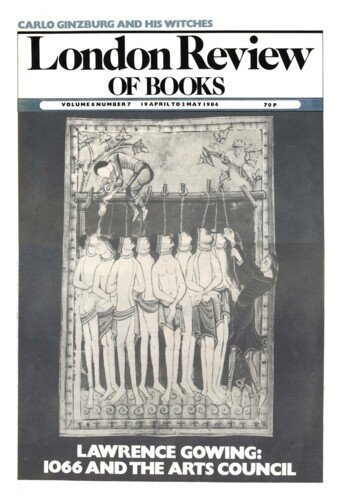Patria Potestas
David Allen, 19 April 1984
One of the great, undercelebrated spurts in individual freedom to have occurred in recent years is the lightening of the age-old pressure on sons to go into the family business regardless of their suitability. Many lifetimes of misery have thereby been eliminated – and at the same time much avoidable inefficiency. For the tradition of equating proprietorship with management and treating both as heirlooms never had much logic, inasmuch as entrepreneurial (or, for that matter, professional) skills are by no means a matter of upbringing or heredity. What the tradition in effect provided was a convenient myth to justify and to sustain paternal striving: for many a concern, the building-up or maintaining of something to pass on to one’s sons – or, in default of sons, some other close relations – has been its principal driving-force. The stronger-willed the father, the less inclined he has always been to fight back that eternal temptation for parents to fashion their children in their own image. Moreover, the ability to hold out the promise of a well-buttressed livelihood – or, better still, a limitless horizon of wealth – in return for a mere modicum of labour has long been the ideal way of prolonging patria potestas into one’s offsprings’ maturer years.–

